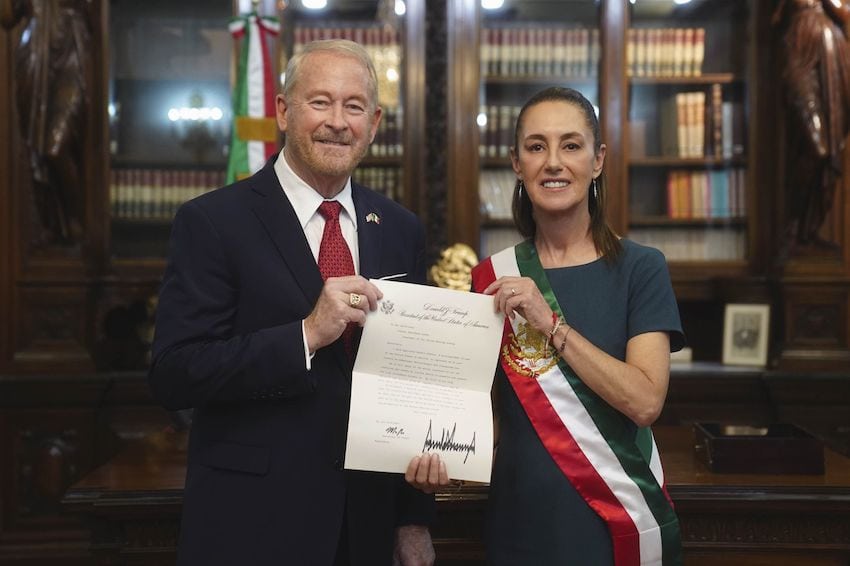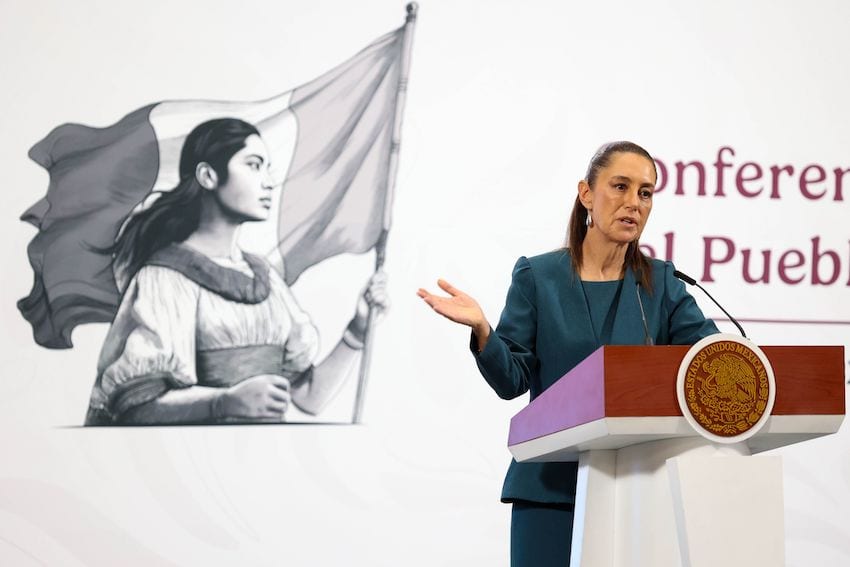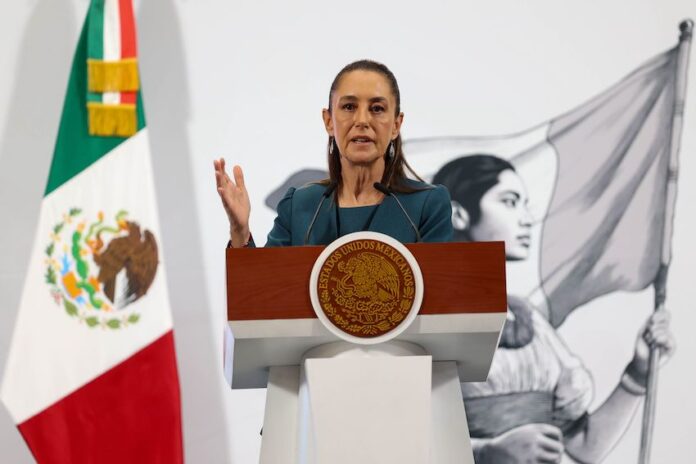The acceptance of letters of credence from new ambassadors to Mexico and the upcoming judicial elections were among the topics President Claudia Sheinbaum spoke about at her Monday morning press conference.
Here is a recap of the president’s May 19 mañanera.
Sheinbaum accepts letter of credence from new US ambassador
Sheinbaum told reporters that she would welcome new ambassadors to the National Palace, including new U.S. ambassador Ronald Johnson, in the early afternoon.
Shortly before 2:30 p.m., she posted a photo to social media that showed her with Johnson along with a letter of credence from United States President Donald Trump.
The president on Monday also accepted letters of credence from the ambassadors to Mexico of Algeria, the Dominican Republic, Colombia and Slovakia.
At Sheinbaum’s mañanera, a reporter said that Johnson — a former U.S. ambassador to El Salvador — has been “very active” since he arrived in Mexico, noting that he had dinner with an “ultra right-winger,” Eduardo Verástegui.

Mexico’s richest person, Carlos Slim, was also reportedly at the dinner hosted by Verástegui, a well-known actor, singer, pro-life advocate and leader of an ultra-conservative political movement. He made an attempt to contest the 2024 presidential election in Mexico, but the National Electoral Institute rejected his candidacy after he failed to accumulate the total number of signatures required to meet the eligibility requirements.
Sheinbaum didn’t comment on Johnson’s dinner with Verástegui, who the new U.S. ambassador described as his “brother.”
Instead, she reiterated that her administration wants a “good relationship with the United States government.”
Sheinbaum said last week that when she saw the new ambassador, she would request “a lot of coordination” and “collaboration” between Mexico and the United States as well as a “relationship of respect.”
Sheinbaum predicts large turnout at June 1 judicial elections
Sheinbaum noted that Mexico’s first-ever judicial elections are just two weeks away.
“We’re very happy, I’m very happy, because there will be broad and free participation,” she said.
“… The people will decide who they want to be part of the judicial branch, [it’s] unprecedented,” Sheinbaum said.
“And I’m also happy because there is a lot of unity between the government and the people,” she added.
Later in the press conference, Sheinbaum conceded she didn’t have an “approximate” number on how many people will vote in the judicial elections.
However, “when polls are done … half of the people say they’re going to vote,” she said.
“… We have to wait and see what the turnout is. It’s better that the people [elect judges] than just a few or the president,” Sheinbaum said.
The judicial elections will take place on Sunday, June 1, after last year’s approval by Congress of a controversial judicial reform. Citizens will elect Supreme Court justices as well as other judges.
Sheinbaum argues that elections are necessary to rid the judiciary of ills such as corruption and nepotism. She said earlier this month that holding judicial elections is “a very democratic way to clean up the judicial power, … to put an end to this nepotism, corruption, and these judges that release criminals from organized crime with impunity.”
There are a range of concerns about the popular election of judges, including that the ruling Morena party will attempt to stack the courts with judges sympathetic to their cause and that organized crime groups could effectively install judges by pressuring or coercing citizens to vote for their preferred candidates.

‘Our support for Marina del Pilar’
Sheinbaum reiterated her support for Baja California Governor Marina del Pilar Ávila, whose United States tourist visa, along with that of her husband, was revoked this month.
“Our support for Marina del Pilar. She has done very good work at the head of the Baja California government,” she said.
Sheinbaum said that the Federal Attorney General’s Office had no information that indicated that the governor was under investigation in the United States.
There is speculation that Ávila, via her husband Carlos Torres Torres, has links to a money laundering network, but the governor denies she has “done something wrong.”
“She does good work, the people like her a lot,” Sheinbaum said. “I’ve seen it, I’ve noticed it while in Baja California.”
By Mexico News Daily chief staff writer Peter Davies (peter.davies@mexiconewsdaily.com)
